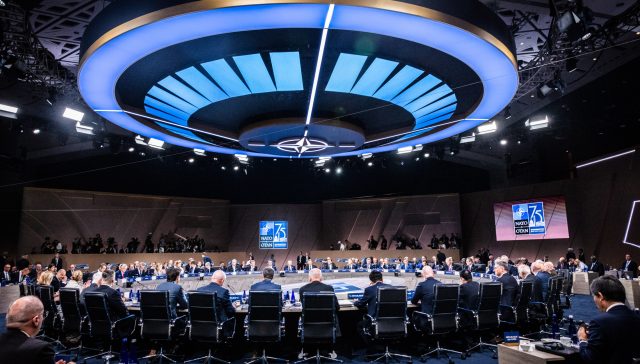
The conclusion of the Washington Summit for NATO’s 75th anniversary leaves room for several reflections. Of particular interest are some statements, entirely consistent with the international scenario facing the Atlantic Alliance, made to the press by General Chris Cavoli.
GENERAL CHRIS CAVOLI
To those who deal with defence or international analysis on a daily basis, Chris Cavoli is anything but a new face. The officer, considered by the military establishment to be among the brightest of this generation, is currently US Supreme Commander in Europe and Supreme Allied Commander in Europe. He is NATO’s second most important military leader, a role that in the past was even built and carved out for Eisenhower. General Cavoli, who boasts Italian origins (his parents are originally from Pinzolo in Trentino), is the author of the NATO Comprehensive Defence Plan approved at the Vilnius summit, the first to be drafted after the end of the Cold War and which focuses on deterrence. It must be remembered, however, that in the unfortunate event that one of the NATO countries were to be involved in a conflict, and the collective defence enshrined in Article 5 of the treaty was triggered, it would be General Chris Cavoli who would lead the European armies for NATO.
DEFENCE INVESTMENTS
Naturally, with the NATO summit in Washington, there was renewed talk of investment in research and in the defence sector by the allied countries. In particular, General Cavoli himself spoke of the need for NATO countries to proceed with the strengthening of industrial capacity, especially in such a leading sector as defence. In the international scenario that we are currently experiencing, starting with the aggression of Putin’s Russia against the sovereign territory of the Ukrainian nation, the growth of production in the defence sector is certainly an objective to be pursued. In particular, it is, as General Cavoli also stated, a long-term discourse to put the Atlantic Alliance in a position to guarantee its own sustenance and above all security even in the event of an attack. In this sense, the general also responded to Italian reporters who asked about the steps taken by Italy to increase investment in the defence sector. Cavoli responded by explaining how the Italian goal of reaching 2% of GDP dedicated to defence is a very important step within the Alliance’s panorama.
OBJECTIVES FOR EUROPE
Of course, one cannot forget that in addition to being members of NATO, many countries are also part of the European Union, and it is also against this backdrop that renewed attention must be paid to defence-related economic policies. The central issues to be taken into consideration are certainly industry, research and the security of European countries and NATO members. The construction of a common industrial policy in the defence sector remains of primary importance. This can be achieved by increasing cooperation in a logic of European sovereignty, aiming at strengthening the entire industrial base. However, it is necessary to maintain the focus on new technologies, with a development that is general, but also linked to research, so as to create a technologically advanced defence industry that is free of external dependencies, but strongly integrated with NATO. Support for the formation of a network between the research centres of EU member states must go in this direction, so as to increase the value of common industrial clusters and shared projects on new defence technologies.
POLITICAL PERSPECTIVES
To do all this, however, it is necessary to impose political instruments on the cooperation between the member states. In particular, a formal meeting of the defence ministers of the 27 within the Council of the European Union would be of primary importance. This action would not only have the formal significance of bringing together defence summits, but would also underline the importance of common defence strategies that new international challenges have made evident.



 Subscribe
Subscribe